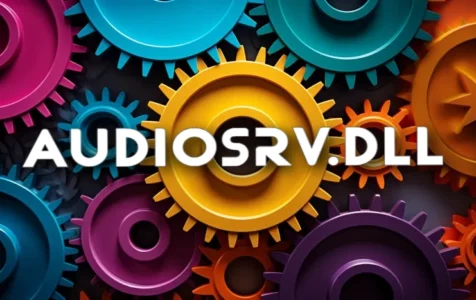The audiosrv.dll file is a dynamic link library that is a vital part of the Windows operating system. With the file description “Windows Audio Service,” it plays a crucial role in managing audio on your computer, everything from the sound you hear when you receive a notification to the music streaming from your speakers.
Is Audiosrv.dll Safe to Run?
Yes, audiosrv.dll is safe to run as it is a genuine Windows system file provided by Microsoft, housed in the System32 folder of your operating system. However, it’s important to mention that any file, including DLLs (dynamic link library files), can be disguised as malware. This means that it’s crucial to confirm that the audiosrv.dll file running on your computer is located in the C:\Windows\System32 folder, any other location could be suspect and warrant a security check.
Could Audiosrv.dll Be a Virus or Malware?
While the genuine audiosrv.dll is not a virus, malware creators can create malicious files that masquerade as legitimate ones like audiosrv.dll. If you find this file outside of the usual System32 folder, it could potentially be malicious. It’s advisable to run a malware scan if you suspect that the file is not legitimate.
Popular Issues with Audiosrv.dll and How to Fix Them
Common issues with audiosrv.dll include error messages stating that the file is missing, not designed to run on Windows, contains an error, or could not be loaded. These errors can prevent audio services from running properly, leading to a lack of sound output on your device.
Expert Tip: For smoother PC performance, consider using a PC optimization tool. It handles junk files, incorrect settings, and harmful apps. Make sure it's right for your system, and always check the EULA and Privacy Policy.
Special offer. About Outbyte, uninstall instructions, EULA, Privacy Policy.
Here are detailed instructions to resolve common audiosrv.dll issues:
- Run System File Checker (SFC): The SFC utility can replace missing or corrupted system files. Open Command Prompt as an administrator and enter the command
sfc /scannow. Wait for the process to complete and restart your computer. - Check for malware: Run a thorough malware scan using your preferred security software to rule out the presence of malicious files.
- Perform system restore: If the issue started after a recent change to your system, using Windows System Restore to revert to an earlier state might fix the problem.
- Update audio drivers: Drivers that are outdated or malfunctioning can cause issues with audiosrv.dll. Update them through Device Manager or directly from the manufacturer’s website.
Addressing User Concerns and Community Discussions
Many users share their experiences with audiosrv.dll problems in community forums. For instance, discussions on the HP Community Forum often focus on troubleshooting audio services that fail to start or crash unexpectedly. Users provide valuable feedback on what worked for them, such as changing service accounts or disconnecting from docking stations. A common piece of advice is to check service login settings and ensure they’re set to the local system account.
For more hands-on experiences and shared solutions, visiting community forums like those at the HP Community can be beneficial. One such discussion on HP’s forum addresses issues related to audiosrv.dll and Windows Audio service.
Conclusion
The audiosrv.dll file is a key component of your audio system on Windows. While it is typically safe and trustworthy, abnormal issues can arise due to file corruption, malware infections, or system changes. By following the recommended fixes and engaging with the community for shared solutions, you can usually resolve audiosrv.dll-related issues and restore your system’s sound functionality. Remember to maintain regular system backups and update your operating system and drivers to minimize the risk of such issues occurring.
